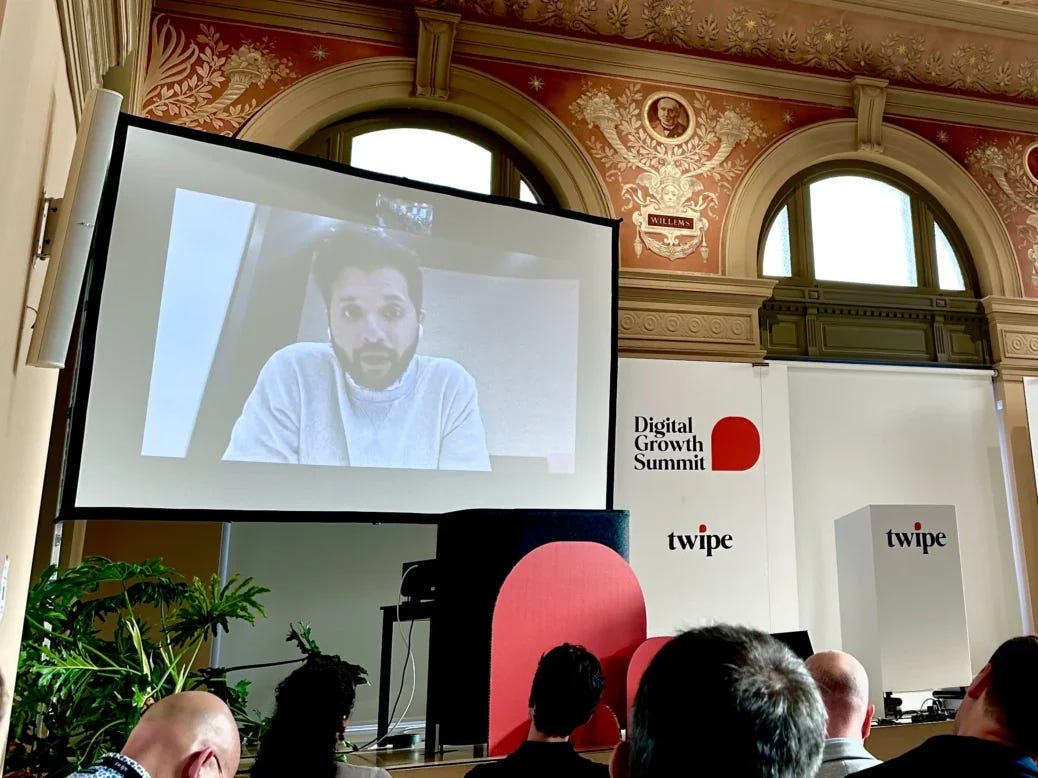OpenAI won't share ad revenue with publishers
And why likes of Politico, FT and Racing Post charge a high price and resist temptation of deep discounting
Welcome to your daily newsletter from Press Gazette on Wednesday, 9 October, 2024 in association with Kordiam.
Managing editorial assignments across multiple teams can be challenging. Content coordination tool Kordiam is a single platform to distribute and manage editorial tasks, allowing you to coordinate your story flow and the operational level that supports it.
OpenAI's head of media partnerships says the company's search product SearchGPT will be rolled out around the world by the end of the year.
But, unlike Microsoft Copilot and Perplexity, it does not plan to share any ad revenue with publishers. The benefit will come from click-throughs. We have an exclusive report from a presentation given by Varun Shetty to a conference in Brussels.
I am highly doubtful that this approach represents an equal value exchange, more like highway robbery, but we shall see.
In the meantime, the US Department of Justice yesterday suggested remedies following its antitrust win in August against Google over its search dominance. This could amount to the break-up of the business.
Whatever the outcome of the legal cases, I suspect Google's search monopoly is on its way out. Google's own generative-AI written answers, via Google AI Overviews, are a bit rubbish. The market is opening up and this can only be a good thing for the quality publishers who create all the content for these tech platforms.
Quality information is valuable, and certainly worth more than the handful of clicks which OpenAI appears to be offering publishers.
Just how valuable it is was underlined at the recent Press Gazette Future of Media Technology Conference where executives from The Guardian, Racing Post, Financial Times and Politico talked about their online paywall strategies. The latter three all charge more than £500 a year for access to their content. In the case of Politico, annual company subscriptions can cost tens of thousands.
The big take-home for publishers was back yourselves. If your content is good enough, and tells the reader something they need to know, people will pay for it.
At the other end of the spectrum, Hold the Front Page today reports on a missive from a Reach editorial director for its network of Live local news websites saying reporters should be writing eight stories per shift in order to hit page-view targets. He does include the proviso that this only applies if you are "not out on a job". But it does raise questions about how journalists can do anything other than rewrite and churn through press releases and information taken from social media in that sort of timescale.
From our sponsor
Each desk using a different tool? Coordinating editors don't know when assignments are late?
Kordiam can help: A single platform to distribute and manage editorial assignments, allowing you to coordinate your story flow and the operational level that supports it.
How does it work?
Tasks are linked to their stories, so you know the context behind each assignment.
Extensive customisation options allow each team to reflect its unique processes.
Media-specific features such as deadlines derived from a story's publication date or separate appointments for assignees.
New from Press Gazette
OpenAI exec rules out sharing revenue from SearchGPT with publishers, for now
Virtually addressing the Twipe Digital Growth Summit in Brussels on Monday, Varun Shetty said the company believed its prototype search engine, SearchGPT, will fairly compensate publishers through “significant incremental traffic from new audiences”.
Because we’re worth it: Why FT, Politico and Racing Post charge big for online news
Politico Europe deputy editor-in-chief Kate Day said: “We are unashamedly expensive.”
Newsrooms 2.0 - Why WordPress is taking over the industry (sponsored)
How The Times, Al Jazeera, New York Post and others drive innovation using Wordpress.
News in brief
Press Gazette is talking to Boston Globe chief commercial officer Kayvan Salmanpour about how local titles can transition from decline to growth on Thursday at 7pm BST in a live (free) webinar. Sign up here.
Jeremy Vine has defected from the BBC to Channel 4 for US election night. Coverage from 10.15pm on 5 November by ITN, in partnership with CNN, will also be hosted by Channel 4 News regulars Matt Frei and Krishnan Guru-Murthy and podcaster Emily Maitlis of The News Agents. (ITN)
Regional press giant Reach has launched a drive to increase story counts across its titles, Hold the Front Page reports. It reports on an email, sent by a senior Reach editor, suggesting reporters should be writing eight stories per shift. (HTFP)
B2B giant Informa has announced a restructure following its £1.2bn acquisition of Ascential and revealed it is on course for annual revenue of £4bn+ and 5%+ underlying growth. (Informa)
The US government has called for "remedies that would prevent Google from using products such as Chrome, Play, and Android to advantage Google search and Google search-related products" after winning an antitrust ruling in August. Full submission here.
Previously on Press Gazette
The Independent set to double profit and revenue over last five years
Male experts dominate broadcast news (but far less than a decade ago)
Sir Harry Evans on chasing the devil and journalism diversity
GB News allowed to challenge Ofcom ruling at full High Court hearing
Harry vs Sun publisher: Battle between ‘two obdurate but well-resourced armies’
Reach CEO Jim Mullen: If government advertises with us, we’ll employ more reporters
Press Gazette live
Entries are now closed for the British Journalism Awards 2024.
But tickets are now available for the awards dinner, which is being held at the Hilton Bankside on 12 December hosted by Jeremy Vine.
Ticket sales information here.







